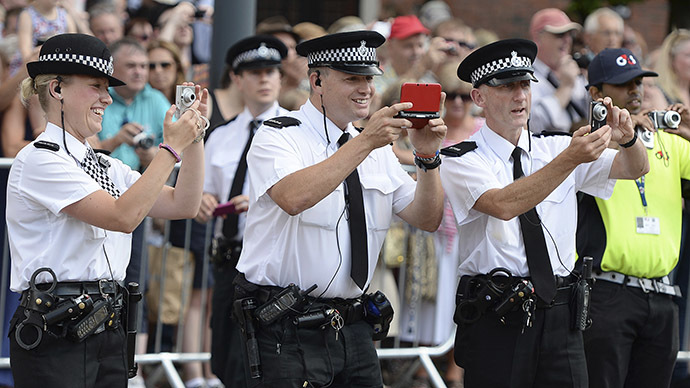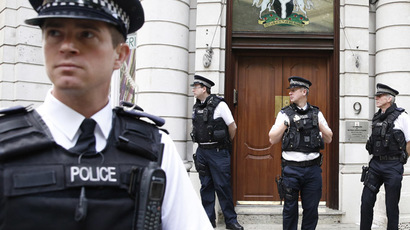Facebooked! UK police post threats, racist comments and ‘compromising’ images on social media

UK police officers and civilian staff made racist and threatening comments on Facebook and Twitter, friend-requested victims of crime and uploaded “compromising” images of colleagues, figures released under the Freedom of Information Act show.
Documents obtained by the Press Association show a total of 828 police employees were investigated over a five-year period for breaching police social media guidelines at forces across England and Wales.
One in seven investigations resulted in no further action or the personnel having no case to answer, but one in 10 resulted in an officer resigning, being dismissed or taking retirement.
In one instance, a civilian officer posted a comment on a Facebook account regarding the actions of Muslims in central London failing to observe two minutes’ silence. It was alleged the language used “could be regarded as offensive/inappropriate likely to cause offence to other persons,” police said.
Various forces also said there were investigations into comments that were deemed homophobic, racist or “religiously aggressive”.
A Police Community Support Officer (PCSO) with Devon and Cornwall Police received a final written warning for posting photos on Facebook of themselves with weapons. A sergeant with the same force received a written warning after publishing remarks on Facebook showing disloyalty to the force and remarks about senior officers.
According to Gwent Police, a constable acted inappropriately while attending a member of the public's home and asked her to become a friend on Facebook, later sending a message through the site. He received a written warning. Another sent a message to a member of the public which was of an “abusive nature”.
An employee with Dyfed Powys was accused of being “threatening, bullying and intimidating towards a complainant by sending private messages via Facebook”, while two special constables in Northampton resigned after being pictured on the social media site in a “compromising position”.
Nottinghamshire Police cited an instance of a constable posting “confidential information concerning an upcoming police operation” while another posted comments “regarding their dissatisfaction at having to work on an upcoming police operation”.
Other instances of professional malpractice include a constable with the Lancashire force making inappropriate remarks on Facebook regarding someone’s wife. A colleague received counseling after an investigation into a Facebook photo of the staff member asleep whilst on duty in the Control Room.
With 88 investigations, Greater Manchester Police reported the most guideline breaches, followed by West Midlands on 74 and the London Metropolitan Police on 69. Just 13 forces reported having 10 or fewer investigations between January 2009 and February 2014.
New guidelines from the Association of Chief Police Officers (ACPO) discourage staff from using social media while off-duty and after drinking alcohol, as their judgment may become impaired.
It also warns of how criminals may search the internet for personal information about police employees “with a view to embarrassing, discrediting, harassing, corrupting or blackmailing them or their families for their own benefit”.
“It is recommended police remove personal details from the edited electoral roll, ensure telephone numbers are ex-directory, ask Google maps to remove pictures of their house, car or persons,” it adds.














